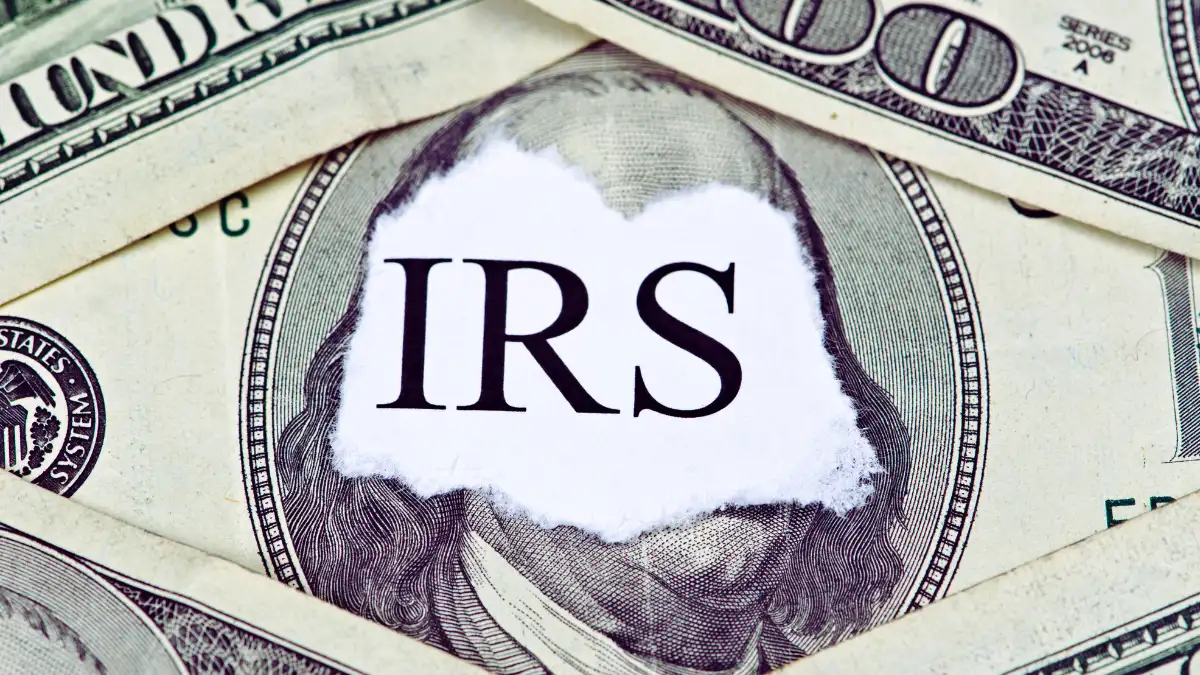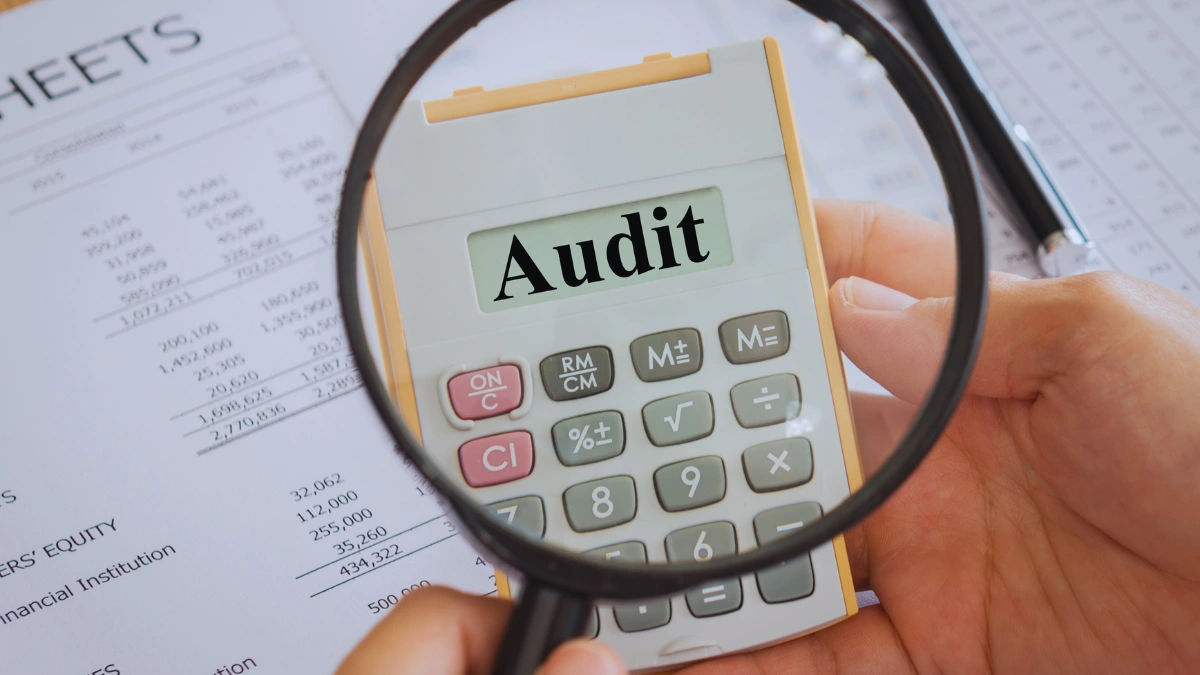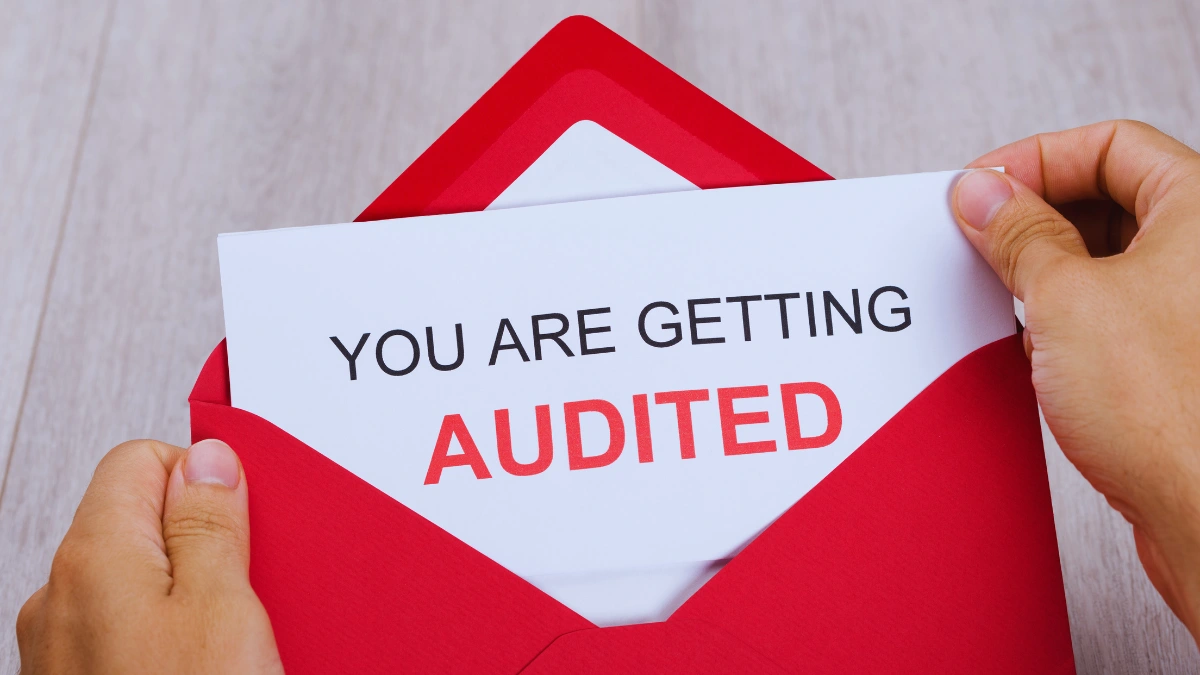You work hard. You pay your taxes. You follow the rules.
So why does it feel like the IRS has a target on your back?
Here’s the uncomfortable truth: If you’re middle-class, you’re more likely to get audited than a millionaire.
About 13 tax returns out of 1,000 filed by those earning less than $25,000 were audited in the fiscal year ended September 30, compared with a rate of 2.6 for every 1,000 returns for people with incomes above $25,000, according to Syracuse University’s analysis.
This isn’t an accident. It’s a system.
In this guide, you’ll learn exactly why the IRS targets middle-class earners more than wealthy taxpayers. More importantly, you’ll get a step-by-step plan to protect yourself and avoid becoming another statistic.
The data might shock you. But the solutions are simple.
Why the IRS Targets Middle-Class Earners More Than the Wealthy
The numbers don’t lie. Despite all the talk about going after the rich, middle-class Americans bear the heaviest audit burden. Here’s why this happens and what it means for your family.
1. The Shocking Numbers That Prove You’re Being Targeted

The audit statistics paint a clear picture. And it’s not pretty.
Low-income taxpayers are audited at five times the rate of everyone else. Think about that for a second. Five times more likely.
63% of new audits target taxpayers earning less than $200,000. That’s nearly two out of three audits hitting middle-class families.
But here’s where it gets really unfair. The number of people with incomes over $1 million has jumped by 50% over the last decade. But the number of audits on million-dollar tax returns dwindled to about 14,000 last year from about 41,000 in 2012.
So while there are more millionaires than ever, fewer of them get audited. Meanwhile, you’re stuck with higher audit odds than people making 10 times your income.
The overall audit rate dropped to just 0.2% in 2020. That sounds low until you realize it’s not spread evenly. If you’re wealthy, your real odds are much lower. If you’re middle-class, they’re much higher.
2. Why Your Simple Tax Return Makes You an Easy Target

Here’s the dirty secret the IRS doesn’t want you to know: They audit you because it’s easier.
IRS spokesman Dean Patterson acknowledged that pursuing the poor is just easier. Because EITC audits are largely conducted through the mail by lower-level employees from a central location, they are “less burdensome for taxpayers than in-person audits”.
Translation: Your 1040 form is simple. Their computer can spot problems quickly. A millionaire’s return might have hundreds of pages and require a team of expert auditors.
The IRS workforce dropped from 94,000 people in 2010 to about 82,000 in 2021. They lost the skilled auditors who could handle complex, wealthy returns. But they kept the entry-level staff who can send you letters about your deductions.
It’s like a police department that stops writing speeding tickets for race cars because they’re too fast to catch. Instead, they focus on bicycles because they’re easier to pull over.
3. Government Study Exposes the Real Problem

A major government study from January 2024 reveals just how broken the system really is.
The Government Accountability Office (GAO) released a report, GAO-24-106112, that should make every middle-class taxpayer angry. The study found that the IRS has not assessed its “research efforts to understand the complexity of high-income returns” and lacks “documented plans for evaluating” audit selection models.
In plain English: The IRS doesn’t even know how to properly audit rich people. They’re flying blind.
The study gets worse. Between 2010 and 2023, one IRS division lost more than half of its primary high-income/high-wealth audit workforce. They fired the people who knew how to catch wealthy tax cheats.
But they kept auditing middle-class families at record rates.
4. How Computer Systems Pick on the Middle Class

The IRS uses computer programs to flag tax returns for audit. These systems are designed to catch simple mistakes, not sophisticated tax schemes.
Your standard deductions and income sources fit neat patterns. The computer can quickly compare your numbers to millions of similar returns. If something looks different, you get flagged.
Wealthy taxpayers have complex investments, business structures, and financial arrangements. Their returns are so complicated that computers can’t easily analyze them. They need human experts.
But the IRS doesn’t have enough human experts anymore. So the computer keeps flagging your return while the millionaire’s gets through unchecked.
It’s like having a security system that only catches people walking through the front door while ignoring the ones sneaking through the back window.
5. The Broken Promises About Protecting You

Politicians promised things would change. The IRS continues to emphasize that the agency will not increase audit rates for small businesses and taxpayers making under $400,000.
But promises and reality are different things.
The Treasury Inspector General for Tax Administration found there is no plan to stop audits on those who can least afford them. Two years after getting $80 billion in new funding, the IRS still hasn’t figured out how to protect middle-class families.
Even worse, the agency is planning an estimated 600,000 new audits on those making less than $75,000. That’s not protection. That’s targeting.
The $400,000 promise sounds good in press releases. But it’s meaningless without a real plan to enforce it.
6. Why EITC Recipients Get Hit the Hardest

If you claim the Earned Income Tax Credit, you’re in the IRS crosshairs.
More than half of the correspondence audits initiated by the IRS last year involved low-income people who claimed the Earned Income Tax Credit (EITC).
The EITC is designed to help working families. But claiming it makes you the audit target number one.
Why? Because the IRS thinks EITC fraud is common. They’re probably right. But their solution is to audit everyone who claims it, including honest families who qualify.
It’s like punishing every student in class because one person cheated on the test. Except the punishment is a stressful, time-consuming audit that can last months.
7. The Rich Bought Their Way Out of Audits

While you worry about every receipt, millionaires laugh at the tax system.
From 2010 to 2015, taxpayers making over $10 million had the highest audit rates. That was almost a decade ago. Things have changed.
Since then, the number of millionaires has grown by 50%. Their audit rates? Cut by two-thirds.
Here’s what really happened: Wealthy taxpayers hired armies of lawyers and accountants. They made audits so expensive and time-consuming that the IRS gave up.
An audit of a middle-class family takes one agent a few weeks. An audit of a billionaire takes a team of experts several years. Guess which one the understaffed IRS prefers?
The result is exactly what Senator Ron Wyden described: “We have two tax systems in this country, and nothing illustrates that better than the IRS ignoring wealthy tax cheats while penalizing low-income workers over small mistakes.”
While you stress about whether you can deduct that $50 work lunch, billionaires pay $0 in taxes and sleep like babies.
The wealthy didn’t just avoid taxes. They broke the entire system that was supposed to catch them.
And you’re left holding the bag.
How to Avoid Being a Statistic
You can’t control IRS policy. But you can control your audit risk. These proven strategies will help you fly under the radar and avoid unwanted attention.
1. Keep Records Like Your Freedom Depends on It

This isn’t about being paranoid. It’s about being prepared.
The IRS can audit you for up to three years after you file. For some situations, they can go back six years. That means keeping every receipt, every statement, and every document that supports your tax return.
Here’s your 2025 record-keeping system:
- Paper receipts: Scan them immediately and store digital copies in the cloud. Paper fades and gets lost.
- Bank statements: Download monthly statements and save them in yearly folders.
- Investment records: Keep all 1099s, dividend statements, and transaction records.
- Business expenses: Track every business meal, trip, and supply purchase with photos and descriptions.
- Charitable donations: Get written receipts for everything over $250. For smaller donations, keep bank records or credit card statements.
The rule is simple: If you claimed it on your tax return, you need proof. No exceptions.
2. Know the Red Flags That Get You Audited

IRS computers look for specific patterns. Knowing these patterns helps you avoid them.
- Income vs. deductions that don’t match: If you make $50,000 but claim $30,000 in deductions, expect questions.
- Round numbers: Claiming exactly $5,000 or $10,000 in expenses looks suspicious. Real expenses end in random amounts.
- Business losses year after year: The IRS thinks you’re either bad at business or lying about hobby expenses.
- Cash transactions over $10,000: These get reported automatically and trigger extra scrutiny.
- Home office deductions: These are audit magnets, especially if you’re an employee claiming office space.
- High charitable deductions: Giving away more than 50% of your income looks unusual.
- Math errors: Simple addition mistakes can trigger correspondence audits.
The key is being reasonable. Claim legitimate deductions, but don’t push the limits unless you can document everything perfectly.
3. What the Latest Research Shows About Audit Prevention

A comprehensive 2022 study by the Transactional Records Access Clearinghouse (TRAC) at Syracuse University reveals exactly how to reduce your audit risk.
The study found that correspondence audits made up 85% of all audits, with most targeting EITC recipients. This tells you that most audits start with a simple letter, not an agent at your door.
The research shows three key patterns:
- Pattern 1: Simple tax situations get audited less. Complex returns with multiple forms and schedules increase your risk.
- Pattern 2: Exact matches between your reported income and IRS records (like W-2s and 1099s) reduce audit chances.
- Pattern 3: Standard deductions are safer than itemizing unless you have significant legitimate expenses.
The study also found that audit rates vary dramatically by state and region. Knowing your local patterns can help you understand your personal risk level.
4. Your 2025 Filing Strategy

How you file matters as much as what you file.
- E-file instead of paper: The IRS plans to digitize “virtually all paper-filed tax and information returns”. E-filed returns process faster and have fewer errors.
- File early: Returns filed in January and February get less scrutiny than those filed in April. The IRS is overwhelmed during peak season.
- Use tax software: Programs like TurboTax and H&R Block catch math errors before the IRS does. They also format everything correctly.
- Double-check all numbers: Make sure every W-2 and 1099 number matches exactly what you report. Mismatches are audit triggers.
- Consider direct deposit: Getting your refund electronically reduces processing errors.
The goal is to make your return as clean and simple as possible. Give the IRS computers nothing to question.
5. Report Every Dollar (Yes, Every Dollar)

Under-reporting income is the fastest way to get audited.
The IRS gets copies of your W-2s, 1099s, and other income documents. Their computers automatically match these against your tax return. If something’s missing, you’ll hear about it.
This includes:
- Freelance income: Every 1099-NEC from clients, even small amounts.
- Investment gains: All 1099-B forms from brokers and investment companies.
- Bank interest: Even $1 in interest gets reported to the IRS.
- Cryptocurrency: Digital currency sales and exchanges are tracked and reported.
- Foreign income: Taxpayers must include “both sources of income” for domestic and overseas earnings.
- Side gig money: Uber, DoorDash, and other app-based income gets reported.
When in doubt, report it. It’s better to pay tax on income you’re not sure about than to face an audit for hiding it.
6. Smart Deduction Strategies for Middle-Class Families

Taking deductions saves money. Taking the wrong deductions costs more.
- Standard vs. itemized: For 2024 taxes, the standard deduction is $14,600 for single filers and $29,200 for married couples. Only itemize if your deductions clearly beat these amounts.
- Safe charitable giving: Donate 10-20% of your income, maximum. Higher amounts trigger questions.
- Document business expenses: If you’re self-employed, keep detailed logs of business miles, meals, and equipment purchases.
- Avoid home office deductions: Unless you use the space exclusively for work, skip this high-risk deduction.
- Medical expenses: You can only deduct amounts over 7.5% of your income. Most people don’t qualify.
- State and local taxes: These are capped at $10,000, so don’t try to claim more.
The rule: When in doubt, take the standard deduction. It’s audit-proof.
When to Hire Professional Help

Some tax situations require expert help. Knowing when to hire someone can save you thousands in audit costs and penalties.
You need a pro if you:
- Own a business with employees
- Have rental properties or complex investments
- Owe back taxes or have IRS problems
- Live in multiple states or countries
- Had major life changes (divorce, inheritance, job loss)
- Make over $200,000 per year
Types of help:
- Tax software: Good for simple W-2 situations. H&R Block provides “tax audit support with in-person representation” for software users.
- CPA (Certified Public Accountant): Best for business owners and complex financial situations. Can represent you in audits.
- Enrolled Agent: Tax specialists who can handle IRS problems and represent you in audits. Often less expensive than CPAs.
- Tax attorney: Only needed for serious IRS problems, criminal issues, or very large tax debts.
Cost vs. benefit:
- Tax software: $50-150, saves 5-10 hours
- CPA: $300-800, saves 10-20 hours plus audit protection
- Enrolled Agent: $200-500, specializes in IRS issues
- Tax attorney: $300-500/hour, only for serious problems
The key is matching the complexity of your situation to the level of help you need.
If You Get Audited: Your Action Plan

Getting an audit notice feels scary. But most audits are simple correspondence reviews that you can handle yourself. Here’s exactly what to do.
First 24 hours:
- Don’t panic. Selection for an audit does not always suggest there’s a problem.
- Verify it’s real. If you’ve been contacted by phone, you haven’t been audited but instead hit up by scammers. Real audit notices come by mail only.
- Read everything carefully. The notice will tell you exactly what the IRS wants to review.
- Check the deadline. You usually have 30 days to respond.
What to gather:
- All records related to the questioned items
- Original receipts and statements
- Bank records showing payments
- Previous year tax returns for comparison
- Any professional advice you received
Your taxpayer rights:
- Right to professional treatment by IRS employees
- Right to understand what they want and why
- Right to appeal their decision
- Right to have someone represent you
- Right to limit the audit scope to the items mentioned in the notice
Response strategy:
For correspondence audits (85% of all audits), mail the requested documents with a simple cover letter. Don’t volunteer extra information.
For office audits, consider bringing a professional. The cost often pays for itself in time saved and better outcomes.
For field audits (at your home or business), definitely get professional help. These are serious and complex.
Common outcomes:
- No changes: You provided good documentation, and the audit closes with no additional tax.
- Agreed changes: You accept the IRS adjustments and pay any additional tax and penalties.
- Disagreed changes: You appeal the decision through IRS appeals or Tax Court.
Most audits result in small changes or no changes at all. The key is having good records and responding promptly.




